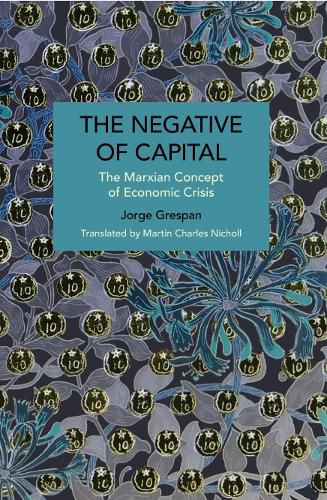Readings Newsletter
Become a Readings Member to make your shopping experience even easier.
Sign in or sign up for free!
You’re not far away from qualifying for FREE standard shipping within Australia
You’ve qualified for FREE standard shipping within Australia
The cart is loading…






What are economic crises? Are they only possible or inevitable? Are they caused by chronic under-consumption, inter-sectoral disproportionality, or a fall in the profit rate? In his study of the concept of crisis in Marx's Capital, Jorge Grespan sets out to answer these questions.
Marx's complex exposition of the concept of economic crisis in Capital and its preparatory manuscripts gave rise to different interpretations about the causes and modalities of capitalist crises. The Negative of Capital renews these urgent debates by treating the concept of crisis as the negative of the concept of capital. In this thoroughgoing exposition of Marx's masterwork, Jorge Grespan reconstitutes the steps by which Capital's exposition progressively enriches its content and form. To this end, dialectical categories such as measurelessness and relative necessity are mobilised and developed.
$9.00 standard shipping within Australia
FREE standard shipping within Australia for orders over $100.00
Express & International shipping calculated at checkout
Stock availability can be subject to change without notice. We recommend calling the shop or contacting our online team to check availability of low stock items. Please see our Shopping Online page for more details.
What are economic crises? Are they only possible or inevitable? Are they caused by chronic under-consumption, inter-sectoral disproportionality, or a fall in the profit rate? In his study of the concept of crisis in Marx's Capital, Jorge Grespan sets out to answer these questions.
Marx's complex exposition of the concept of economic crisis in Capital and its preparatory manuscripts gave rise to different interpretations about the causes and modalities of capitalist crises. The Negative of Capital renews these urgent debates by treating the concept of crisis as the negative of the concept of capital. In this thoroughgoing exposition of Marx's masterwork, Jorge Grespan reconstitutes the steps by which Capital's exposition progressively enriches its content and form. To this end, dialectical categories such as measurelessness and relative necessity are mobilised and developed.